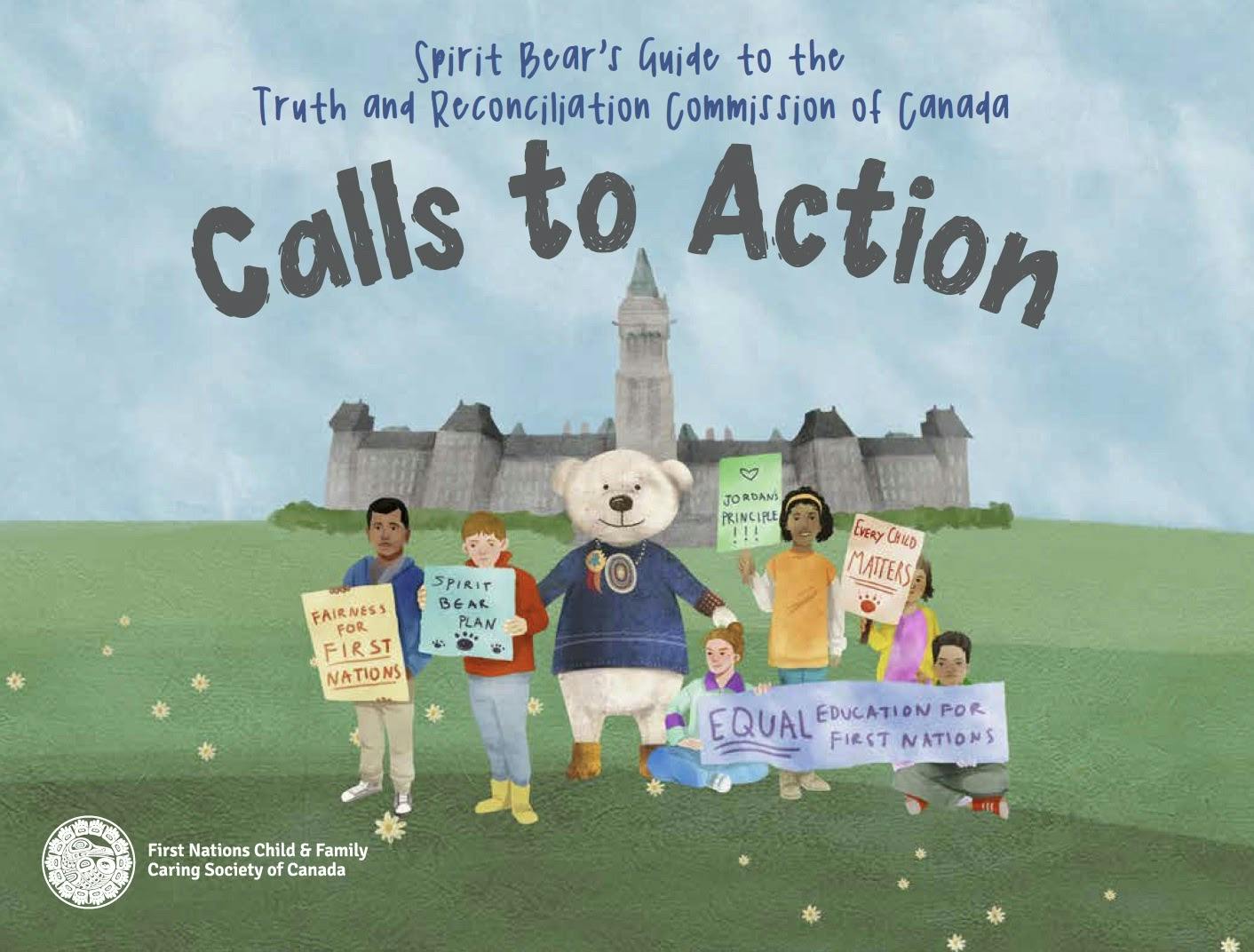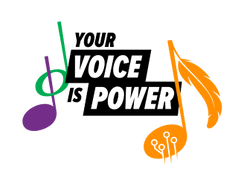Action: TRC And The Four R's
Activity 2: Understanding the Spirit Bear Guide to TRC (20 minutes)
As we journey towards learning about the inequalities and injustices that Indigenous peoples have faced in Canada, there has been work done by the following groups to bring forward the truth of what happened to Indigenous peoples in residential school:
- Federal government
- Assembly of First Nations
- Inuit representatives
- Residential School Survivors
- Church bodies
This work has resulted in 94 Calls to Action that will bring forth truth, and help heal and reconcile Indigenous and non-Indigenous peoples.
The Truth and Reconciliation Commission of Canada (TRC) was created through a legal settlement among:
- Residential Schools Survivors
- Assembly of First Nations
- Inuit representatives and the parties responsible for the creation and operation of the school
- Federal government
- Church bodies

The TRC’s mandate was to inform all Canadians about what happened in residential schools.
The TRC documented the truth of Survivors, their families, communities, and anyone personally affected by the residential school experience.
This included First Nations, Inuit, and Métis former residential school students, their families, communities, the churches, former school employees, government officials, and other Canadians.
The TRC created 94 Calls to Action that call upon different levels of government and different communities to implement them in the spirit of truth and reconciliation.
The Calls to Action are in different categories such as Education, Housing, Language Revitalization, and more.
Review the Spirit Bear Guide to the Truth and Reconciliation Commission of Canada Calls to Action.
This guide is created by the First Nations Caring Society.
It provides an overview of the 94 Calls to Action.
In groups or as a class, read and respond to questions in your Student Writing Activities Workbook.
Discuss in groups or as a class at least one question from each section below: Awareness, Analysis, and Action.
Awareness
- What new or evolved understanding(s) of racial injustice have you gained during this experience?
- What were you not aware of before this experience?
- What evidence of the existence of racial inequity most compels you to want to promote and advance racial justice?
Analysis
- To what extent do you feel that you work to promote racial equity? Are there positive things you do already advance racial justice?
- If so what are they, and what are new or different things you can do moving forward to further promote racial equity?
- If standing for racial equity is new for you, what is something you'd like to begin doing and why? In what ways do you see racial injustice take place in your school, neighbourhood, city, state, or our country?
Action
- As you make a commitment to address racial inequity, what do you believe will be hard? Who can help or support you? Are there others engaged in work you'd be interested in joining or partnering with?
- Who did you learn about this week that inspires you to take action and why?
- As you take action, what difference or change do you believe it will make? How will you use your voice and actions to fight as a member of a marginalized group or as an ally? How can or will you encourage others to promote equity as well?
Activity 3: Reflect on Your Song and the Four R's (10 minutes)
Think about how your song can reflect the Four Rs Framework
In your Student Writing Activity Workbook, choose one call to action and think about how your song can incorporate the Four Rs - Respect, Relevance, Reciprocity, Responsibility.
Respect: In the spirit of reconciliation, how can you use your song to show respect for Indigenous people and culture?
Relevance: How is the call to action you selected relevant today? How is it relevant to Indigenous perspectives and experiences?
Reciprocity: After learning about the 94 Calls to Action, how can you give back to the Indigenous community? How can you foster reciprocal relationships with others?
Responsibility: What are three specific actions people can take to advocate for change? How will you responsibly use your voice?
Activity 4: Choose Calls To Action (10 minutes)
In the spirit of truth and reconciliation, we are going to write our own statement about what reconciliation means to us and what we are going to do in our lives to promote and achieve reconciliation between Indigenous and non-Indigenous peoples.
Answer these questions in your Student Writing Activities Workbook.
- Why is reconciliation important?
- What you are going to do in your life in the spirit of reconciliation?
